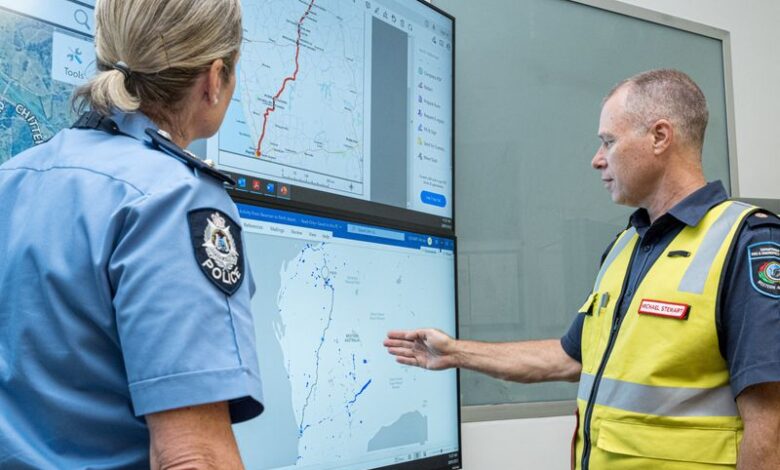Australia recovers radioactive capsule, finds ‘needle in the haystack’ By Reuters

[ad_1]
By Lewis Jackson and Melanie Burton
SYDNEY (Reuters) -Australian authorities on Wednesday found a radioactive capsule smaller than a coin that was lost in the vast Outback after nearly a week-long search involving around 100 people along a 1,400 kilometres (870 miles) stretch of highway, officials said.
The Caesium-137 capsule lost in transit more than two weeks ago was discovered when a vehicle travelling at 70 kms per hour equipped with specialist detection equipment picked up the radiation, according to officials from the state of Western Australia.
The search team then used portable detection equipment to find the capsule, which was located about 2 metres from the side of the road in a remote area far from any community, they added.
The radioactive capsule was part of a gauge used to measure the density of iron ore feed from Rio Tinto (NYSE:)’s Gudai-Darri mine in the state’s remote Kimberley region. The gauge was being taken to a facility in the suburbs of state capital Perth – a distance longer than the length of Great Britain.
People had been told to stay at least five metres (16.5 feet) away if they spotted the capsule, because exposure could cause radiation burns or radiation sickness. However, driving past it was believed to be relatively low risk, akin to taking an X-ray.
Western Australia’s Emergency Services Minister Stephen Dawson said the find was an “extraordinary result” after a search involving the state’s emergency response department, defence authorities and radiation specialists.
“When you consider the scope of the search area, locating this object was a monumental challenge, the search groups have quite literally found the needle in the haystack,” he said.
A 20-metre exclusion zone has been set up around the capsule while defence force members verify it via a serial number.
It will then be placed in a lead container and stored overnight at a secure location in Newman, a mining town roughly 1,200 km north-west of Perth, before being taken to the state capital on Thursday.
The silver capsule, 6 mm in diameter and 8 mm long, contains Caesium-137 which emits radiation equal to 10 X-rays per hour.
Officials said the capsule apparently fell off a truck during transport and landed on the side of the road, adding that it was unlikely there will be contamination in the area.
Rio is willing to pay for the cost of the search if asked by the government, iron ore division head Simon Trott told reporters. He added there would be a full investigation into the circumstances of its loss and the company would put in place additional controls to prevent a recurrence.
Rio said in a statement that it would investigate whether the use of specialist contractors had been appropriate, having entrusted the gauge to SGS Australia and Centurion for packaging and transportation respectively.
SGS did not immediately respond to a request for comment.
Centurion said in a statement it was seeking answers about how the capsule became dislodged during transportation given the crate and pallet provided by SGS arrived in Perth in the same condition as at the start of the journey, and GPS data had shown no sudden changes in speed.
“From a freight and logistics perspective this indicates a routine journey, and the fact that the crate was not opened for a week until after delivery reinforces that view,” Centurion said.
Western Australia’s Chief Health Officer Andrew Robertson said there would be an investigation and prosecutions would be considered under state radiation safety laws from 1975.
The maximum penalty for failing to safely handle radioactive substances is A$1,000 and A$50 per day the offence continues, though the state government said on Wednesday it was considering a change to laws to allow for bigger penalties.
Officials said any change to penalties would not be retrospective.
[ad_2]
Source link



